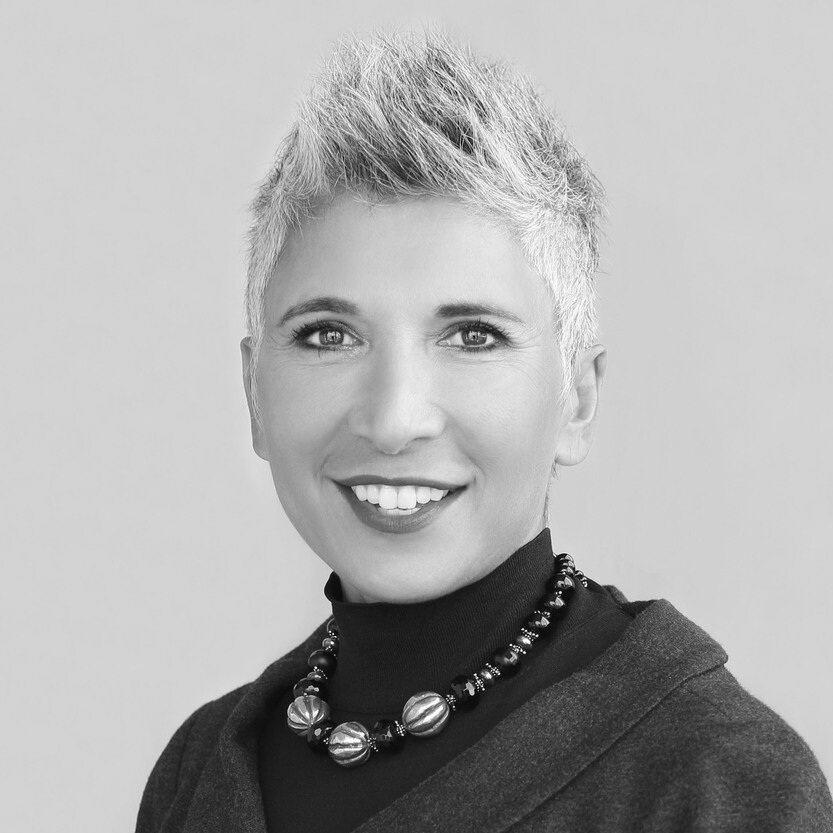Technological, social, and political disruptions are all around us. Julian Birkinshaw and Tima Bansal describe how thriving in this new world requires agility, innovation, and collaboration.
We live in a world of change. From the energy sector to the financial markets, things are shifting beneath our feet. NBS’s podcast series shares experts’ views on leading positive change in the face of disruption.
This episode describes how disruptions are broader than we realize – and require broader efforts to address them. The discussion brings together:
Julian Birkinshaw is professor of Strategy and Entrepreneurship and deputy dean at London Business School.
Tima Bansal, professor of Strategy at the Ivey Business School and the executive director the Network for Business Sustainability.
(The podcast is an edited version of an interview posted earlier.)
NBS’s podcast series shares experts’ views on leading positive change in the face of disruption. This series is about discussion. We want to hear from you. What changes do you see remaking our world? How is your organization navigating toward the future? What topics should we cover?
Write to us at info@nbs.net or join the conversation by visiting our Facebook page and sharing your thoughts.
On the go? Listen to this podcast on Spotify or iTunes.
0:45 What is disruption? How do you define disruption for business managers?
5:40 Does business miss out by focussing only on digital disruption?
8:25 Is disruption really happening?
14:00 How do we connect disruptions to sustainability issues?
20:00 How should business respond?
Here are some interview highlights.
One kind of disruption gets attention
Julian Birkinshaw: The word disruption has been sort of hijacked in the business world by technological disruption and, in particular, this notion of disruptive innovation. In disruptive innovation, a technological innovation is initially less attractive to incumbent companies, but because it’s on this trajectory of rapid improvement, it sneaks up on incumbent companies.
So, when you talk about disruption in the business world today, most people leap into this digital or technological disruption conversation: “Is our business going to be ‘Uber’d’? Are we going to be challenged by a company with a new business model, typically one built on a platform, typically one built on a new technology that we don’t fully understand?”
But there’s a much broader way of defining the term disruption. A change can be environmental, social, technical, or political. When a change is dramatic in one direction or another — discontinuous is another word that’s sometimes used — that counts as a disruption.
Tima Bansal: Climate change is an obvious disruption. Other disruptions include new social movements, like the rise of populism, and the refugee crisis. Within the technological arena, disruptions include artificial intelligence, autonomous vehicles, 3D printing, and genomics.
The impact of disruptions goes beyond an industry sector
Tima: As Julian says, an industry may worry about being disrupted. But ultimately, disruptions affect whole systems. They affect people, institutions, and our physical world.
The impacts of a disruption are difficult to predict because of these many factors, which have their own relationships. For example, will autonomous vehicles result in less congestion, or could they result in more congestion? The answer depends on how cities, workplaces, and individuals respond.
Julian: In a system, we know that A affects B and that B might affect C, but actually thinking through all the second and third order and more effects is impossible. That’s why disruptions are so challenging. We’re quite good at extrapolating in a linear way from how things have always worked, and we can just about take account of small changes. But when one thing changes dramatically, that’s when our ability to anticipate and predict what’s going to happen kind of breaks down.
Tima: Ultimately, these changes will reverberate through all aspects of what we do.
Changes are already playing out in unexpected ways
Julian: Tech companies such as Amazon, Google, and Facebook have been incredibly clever and aggressive about harnessing information technology to do things that they believe are for the good but without a whole lot of thought about the potential negative impact that they are creating.
For example: they are in many cases giving products away to us, in return for our information, which they are then using to build other products and services. If Amazon becomes so dominant that they’re able to drive out small businesses and whole retail shopping streets, then perhaps they’re actually damaging society as we know it.
Tima: As these companies gain greater control of technology and a bigger bite of the economy, power shifts from Wall Street to Silicon Valley. Without government controls and sanctions, the people who own the technology can use it to advance their own aims, and civil society remains unaware of its effects. The conversations occurring in the U.S. and Europe about Russian tampering in domestic politics is just one small edge of a very large wedge.
In terms of sustainability, if we’re not foresightful, if we’re not deliberate in our understanding of what’s going on, we will leave groups of people behind.
Government is playing catch-up
Julian: All of the regulations and laws that were created to define what sort of business behavior’s acceptable – all those rules were created 100 years ago. Intellectual property, anti-competition, governance — all were created for industrial companies, not today’s digital firms. The institutions that govern them are just completely unfit for purpose. We need the regulators and the public policy people to rethink the means by which they define the rules of the game so that these digital companies understand the consequences of their actions.
To be part of the solution, organizations can take different strategies
Julian: If you are a corporate executive, how do you in your company cope with disruption? I teach a course in the London Business School called “Achieving Strategic Agility,” which is all about trying to build an organization and frame of mind in managers that enables much more rapid responsiveness to changes that are happening. How do you avoid the negative stories of a Kodak or a Nokia?
The much bigger question is about how society as a whole copes. What’s good for society is not necessarily the same as what is good for companies. Sometimes, the job of companies is to maximize their profits without regard to consumer welfare issues.
Tima: Companies can innovate their own role, creating the change that they want to see in the world. They can shift the products or the markets that they pursue, creating a niche. Oil and gas companies should, for example, think about using their feedstock for purposes other than just energy production, such as adhesives. Or, they could think about using the technologies that they have developed, such as separating oil from water or transporting oil for other related processes.
Ultimately, companies need to get involved in broader dialogue. Public policy can be one of the solutions, but given the speed at which companies are able to move, public policy will never be able to catch up, because the institution of government has just been too slow. So we need a different mechanism for governance, for allowing us to control some of the consequences.
We need to have a conversation with technologists, society, and business and those people have to be in the same room. We need to build the partnerships and the informal and formal collaboratives that will allow this to happen.
Julian: We talk a lot about business model innovation, where the company is the agent of change. We don’t give as much thought to institutional innovation – active attempts to shape the institutions of capitalism, the system in which we work, for the better. One example is open source software, which is a different approach to intellectual property that benefits society. One of my current research projects is to look at institutional innovations from the industrial to digital era, to say what are the things that are changing, what are the things that need to change.
We can make sense of change
We need to see the changes around us, and understand how to address them. Future installments of this series will dive into different strategies for action, from collaboration to new approaches to strategic planning.
Have an idea or experience you’d like to share? Share it with us.
0:45 What is disruption? How do you define disruption for business managers?
5:40 Does business miss out by focussing only on digital disruption?
8:25 Is disruption really happening?
14:00 How do we connect disruptions to sustainability issues?
20:00 How should business respond?




Add a Comment
This site uses User Verification plugin to reduce spam. See how your comment data is processed.This site uses User Verification plugin to reduce spam. See how your comment data is processed.